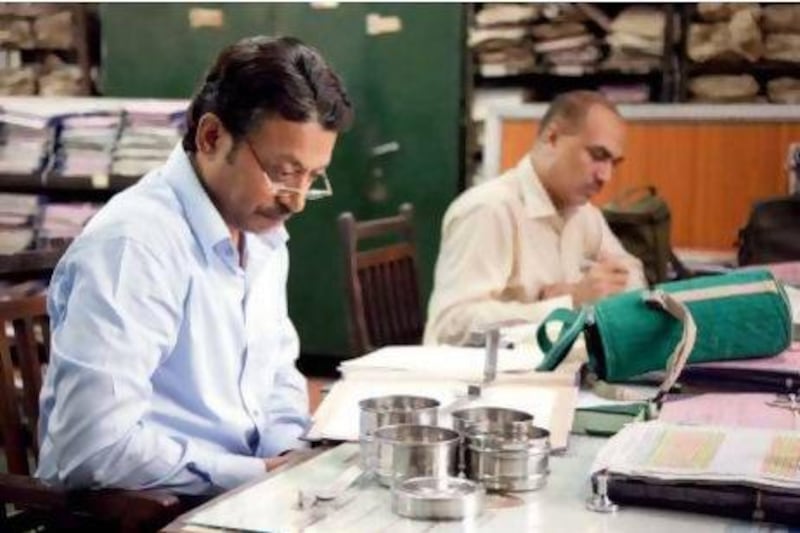Mumbai's dabbawallahs (lunch-box delivery men) make only one mistake for every six million deliveries. Ritesh Batra's critically acclaimed film, The Lunchbox, takes off from that single fortuitous error, telling the story of an ageing man and a young, lonely housewife who connect over a lost lunchbox.
The film was screened at the International Critics’ Week selection at the Cannes Film Festival last month.
Although this is his first full-length feature, Batra managed to put together an enviable cast, with Irrfan Khan (Life of Pi), a fresh new face from Mumbai's theatre world, Nimrat Kaur, and Nawazuddin Siddiqui (Gangs of Wasseypur) in the lead roles.
The film also won the Critics’ Week Viewers Choice Award, also known as Grand Rail d’Or, at Cannes. After the encouraging response, Sony Pictures Classics acquired the film’s distribution rights in North America.
The film is based on Mumbai’s dabbawallahs, a veritable emblem of the city’s efficiency and pace. India is a nation obsessed with food and, to make sure their husbands and children eat fresh, home-cooked lunches every day, housewives all over the city employ the dabbawallahs to ferry meals to their family members.
Every day, an army of dabba-wallahs collects the freshly cooked food – placed in tiered metal “tiffins” – and delivers them, bringing empty boxes back in the evening.
“The dabbawallah system could only happen in Mumbai – my story is universal, yet rooted in the city.
"I was doing some research for a documentary on dabbawallahs in 2007 and I met them. They told me all these stories about the housewives that have to interact with, which sparked the script for The Lunchbox," explains Batra, adding that it took him five years, on and off, to finish the script.
The lunchbox, the receptacle through which Saajan (Khan) and Ila (Kaur) start up a correspondence, becomes a motif of hope and redemption for two lonely, anonymous people in a teeming -metropolis.
While the use of the letter as a narrative device might be considered outdated, it is still relatable.
“The characters are unhappy with their lives and are behind the times, in a way,” says Batra.
“So, the letters are a perfect means of communication. Filming the reading of the letters [by the actors in voice-overs] was not a challenge at all because Mumbai is a visually rich city and provided a great backdrop for the film.”
Batra, whose credits include three award-winning short films: The Morning Ritual, Gareeb Nawaz ki Taxi and the Arabic film Café Regular, Cairo, says the success of The Lunchbox on the international circuit could possibly hold the key to future independent film production in India with an international crew.
The film’s producers come from three countries – India, France and Germany – with a German sound designer and composer, a French colourist and an American photography director.
This is exactly what the filmmaker was going for – a universal tone; a story that audiences could relate to across the world, irrespective of the demographic; and a tale that would enthral on any screen.
“The script got a lot of attention at film festivals,” says Batra. “Actually, a lot of foreign producers were competing for it. It was very fortunate because for a co-production across countries, a lot of money has to be spent.
“It felt good to have all this collaboration. They are, after all, the first audience for the film. The idea was to make it speak to everyone.”
Follow us
[ @LifeNationalUAE ]
Follow us on Facebook for discussions, entertainment, reviews, wellness and news.










